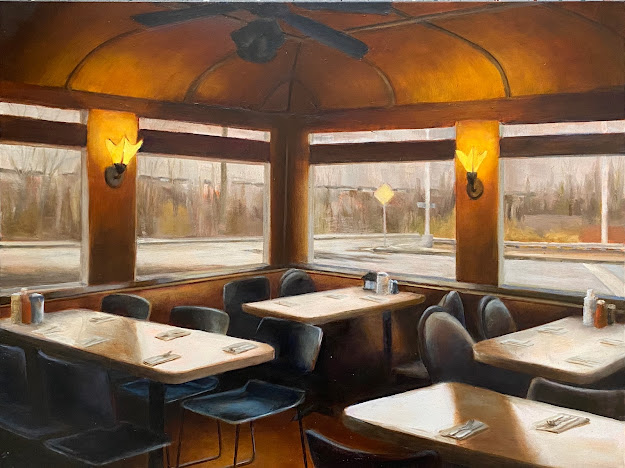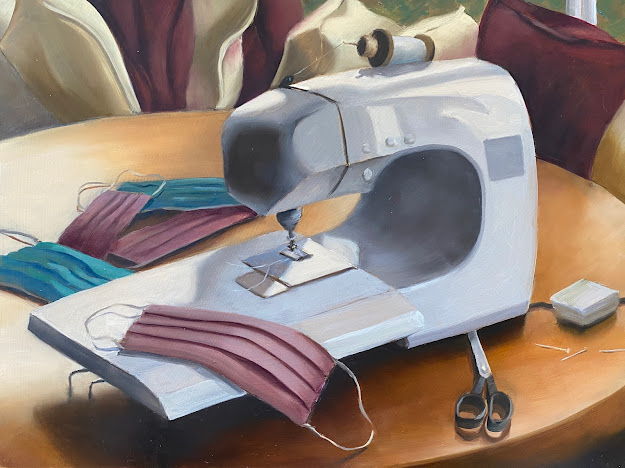Sorry, We're Closed
Coronavirus series
16x12 oil on panel
As the stay-at-home orders began to reshape our lives, our eyes moved from the large public spaces that were empty to the more intimate gathering places that had been ordered to close. Restaurants, where we go for conversation and community as much as for food were shuttered. First the idea that lunch with a friend or a casual cup of coffee was not possible was a shock, then the realization of the depth of our troubles crystallized seeing all the "Closed" signs. Dread of the economic fallout took hold. Not only were individual workers doing without needed income, but how many businesses could survive being shut down for a couple of weeks? As weeks turned into months we knew that a second disaster was taking place all around us. All those closed doors indicated another form of silent suffering that would take an enormous toll in a whole different way.


